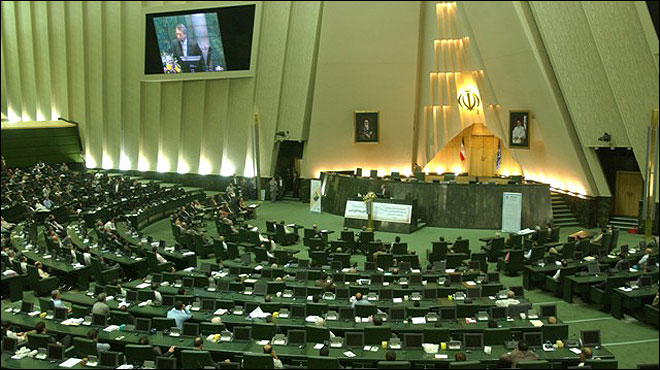According to articles 77 and 125 of constitution, the parliament has the right to ratify or refuse any intergovernmental or international memorandum of understanding, agreement, conventions, and covenant that commits the country and must be supported nationally.
The Parliament will address the country’s nuclear deal in late September,
Mohammad Hassan Asafari told Trend Sept. 8.
"The JCPOA is under study in a special commission in the Parliament. JCPOA Special commission is busy studying the plan and it is yet to be decided whether the Parliament accepts or rejects it", Mohammad Hassan Asafari, who is a member of the Iranian parliament’s National Security and Foreign Policy Commission.
Yari says that parliament has at least five serious objections to the nuclear deal:
1- The first reason is that the International Atomic Energy Agency (IAEA) has confirmed at least 30 times during the last 12 years that it has not found any proof showing that Iran is producing nuclear weapon, but the IAEA wants to have beyond ordinary supervision over Iran`s nuclear activities.
2 - The reason Iran accepted to negotiate the nuclear program was to build trust with international community around its nuclear program, but western officials` statements imply in fact that they consider the JCPOA as a barrier for Iran to prevent it from producing a nuclear bomb and any small problem can become a pretext for the West to accuse Iran of making a nuclear weapon.
3 - The other problem is the process of appealing objections, which is a four-stage process: appealing to common commission, advisory council, ministerial commission and finally the UN Security Council. It seems Iran`s rights in this process was ignored, because if Iran and P5+1 don`t agree on an objection, finally it would be the UN Security Council`s permanent members that would decide on the dispute.
4 - Iran was obliged to imply restrictions to its nuclear activities, change the application of some facilities, suspend some activities, but it was not mentioned in the JCPOA that if the sides have disputes and leave the agreement, who should compensate Iran`s loss.
5- Iran`s Supreme Leader Ayatollah Ali Khamenei has issued a fatwa (legal opinion) banning nuclear weapon, but the West doesn`t recognize that and still has doubts about Iran`s nuclear activities.
Khamenei said on Sept. 3 that he favored a parliamentary vote on the nuclear deal, putting an end to disputes over the justifiability of a parliamentary vote on the deal.
The Iranian administration has accepted to inform the Special Parliamentary Commission to Review the JCPOA the MP, Hossein Naghavi Hosseini said.
Naghavi Hosseini, who is the spokesman of the aforementioned commission, announced earlier that the MPs asked Ali Akbar Salehi, Iranian vice-president and head of the country’s Atomic Energy Organization (AEOI) to submit the secret deal to the commission members as well. Salehi has agreed to brief the parliamentary commission about the details of the secret Iran-IAEA agreement, Naghavi Hosseini added.
Head of the IAEA Yukiya Amano and Head of the Atomic Energy Organization of Iran Ali Akbar Salehi signed a roadmap of cooperation in Vienna on July 14.
More about:
















































